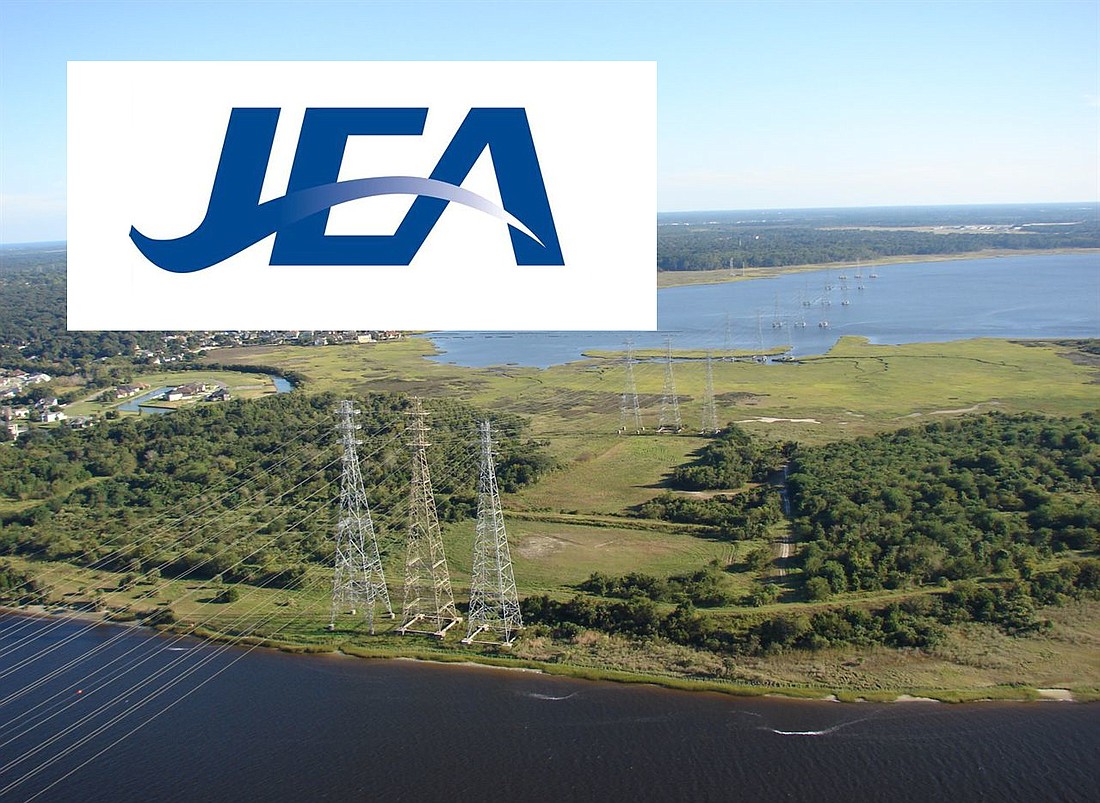
The JEA board of directors will hold a public hearing in February before voting on a proposal to raise the residential electric base rate by 172.72%.
The board voted unanimously Jan. 24 to schedule the required hearing at its Feb. 28 meeting.
JEA officials plan to raise the basic monthly charge portion of an average residential bill from $5.50 per month to $15. That covers customer service-related costs, including billing, call center services and meter reading.
The utility says the increase will be offset by a reduction in the base rate’s energy charge from $71.71 to $65.46 and roll JEA’s environmental and conservation charges into other fees.
The base rate comprises all three charges.
A cost-of-service analysis showed that the utility’s residential electric system will bring in $438.2 million in fiscal year 2023 — Oct. 1, 2022, to Sept. 30, 2023 — without rate changes. That is $39 million, or 8.2%, below what it needs to generate to be revenue neutral.
Combined with projections that JEA’s monthly fuel costs will continue to drop through April as global natural gas prices continue to stabilize, the utility projects many overall monthly bills will drop.
The new rates would take effect in April.
JEA began varying the fuel charge on a residential customer’s monthly bill last year as spiking natural gas prices began to deplete its stabilization fund, directly passing on the cost of fuel to customers.
The effort is meant to reverse a projected fiscal year 2023 revenue shortfall for its electric system shown in the results of a cost-of-service analysis released by JEA in December.
Including the increased basic monthly charge, JEA estimates an average residential customer using 1,000 kilowatt hours of electricity per month will pay $141.35 after taxes and fees in April 2023.
That compares to a recent peak of $174.89 in October 2022. A chart displayed during the Jan. 24 board meeting shows the reduced energy charge would bill a 1,000-kilowatt user an estimated $65.46 in April 2023 compared with $71.71 in October 2022.
The average fuel charge on a residential customer’s bill in October 2022 was $79.03 compared with an estimated $44.57 in April 2023. That is based on projections made in November.
It still is higher than October 2021 when customers were paying $30.50 for fuel. The average overall customer bill at that time was $123.35.
If market conditions change and the price for fuel rises, so will JEA electric bills.
Plant Vogtle
JEA CEO Jay Stowe told news reporters after the meeting that the hike will take into account JEA’s full cost in its agreement to receive power from the Georgia nuclear Plant Vogtle.
Stowe said there will be more rate increases.
“In our models we have several years of small, less-than-inflation rate increases that would come in large part to be sure that we fund Vogtle and keep our (electric) system as strong as we can,” Stowe said.
JEA signed the 20-year power purchase agreement with the Municipal Electric Authority of Georgia in 2008 to draw 206 megawatts of power from the new nuclear plant when its unit 3 and 4 expansion is complete.
Georgia Power is majority owner of Plant Vogtle with smaller stakes owned by Oglethorpe Power Corp, MEAG and Dalton Utilities, according to Georgia Power’s website.
When it is fully up and running, Vogtle will supply up to 14% of JEA’s power, according to Stowe, and it will be emissions-free.
JEA Chief Administrative Officer Jody Brooks said Jan. 24 that recent vibrations detected during testing of unit 3 has pushed back the plant’s operational date to April.
That one-month delay cost plant Vogtle participants $9 million — $2.5 million for construction and $6.5 million in debt.
Stowe said the other upside to Vogtle is that nuclear fuel will be less expensive for JEA and eventually could lower the fuel charge for customers.
Industrial customers
JEA board reports also show a revenue shortfall from JEA’s largest commercial and industrial electrical customers — classified as Interruptible Service Extra Large Demand.
According to JEA, that is any customer with measured monthly billing demand of 50,000 kilowatts or greater for eight or more billing periods out of the last 12 consecutive billing periods that may be completely interrupted by JEA.
JEA Director of Financial Planning and Rates Victor Blackshear said Jan. 24 that the utility will pause a possible rate increase for these customers as JEA evaluates the possibility of using a real-time pricing model to bill them.
Real-time pricing varies each hour based on the utility’s real-time production costs, JEA Media Manager Karen McAllister said in an email.